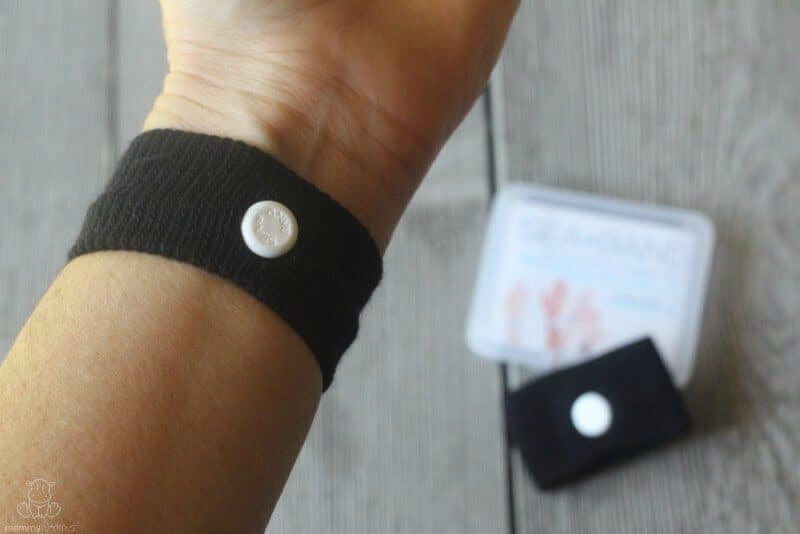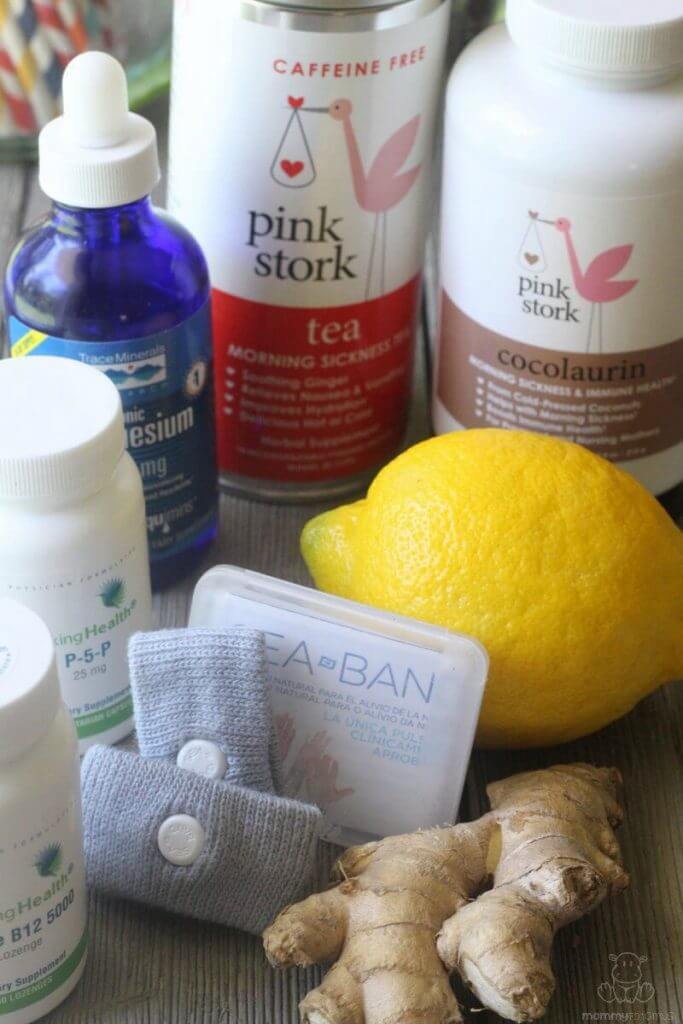
“Tried that, didn’t work” is a common phrase we hear about morning sickness remedies. Why is that, and are there evidence-based ways to ease pregnancy nausea? Those are the questions we’re going to dive into today. If you haven’t read it yet, earlier this week we talked about the causes of morning sickness, and how I managed to avoid it with pregnancy #2 and #3 using nutrition and supplements. In this post we’ll cover tips for easing nausea and food aversions while getting your baby the best nourishment possible.
Before we jump in, though, please keep in mind that this article is for informational purposes only. It is not intended to be a substitute for professional medical advice, diagnosis, or treatment – a full disclaimer can be found here. Okay, on to the post!
Morning Sickness Remedies
We’re all unique and some remedies may work better than others based on each mama’s situation, but one thing to consider before writing off a remedy is that most need some time to do their thing.
According to Dr. Amy O’Donnell, who co-authored a study on several of the remedies we’ll be discussing (ginger, vitamin B6 and acupressure), “The evidence suggests that if these measures are going to be effective, they’ll start to help within three to four days.” (source) With that in mind, here are some suggestions for easing (or possibly preventing) nausea during pregnancy.

#1- Magnesium
Okay, I know just about everything seems to relate back to magnesium these days. Dog’s tail turned blue? Magnesium deficiency! Bus was late? Magnesium deficiency! But here’s the deal: Magnesium really does play a critical role in over 300 enzymatic reactions within the body, impacting everything from energy metabolism and stress management to hormone balance, detoxification, sleep, the creation of proteins, and yes, nausea.
When it comes to morning sickness, the important thing to know is that magnesium plays a crucial role in balancing cortisol, which is the primary hormone that influences blood sugar. (Deans 2011, Briden 2014) Blood sugar swings (particularly dips) are thought to be one of the main causes of pregnancy nausea, so doctors and midwives often recommend approaches that support stable blood sugar.
It may also have other benefits during pregnancy, such as helping us be more resilient to physical and emotional stress, and possibly increasing our pain tolerance (not a bad thing for labor!). (source) I found it helped a lot with restless leg syndrome late in pregnancy.
Ideally we’d get all our magnesium from food, but most foods are lower in mineral content than they used to be due to soil depletion. (source) I found that to keep my restless leg symptoms from flaring toward the end of my pregnancy I needed to supplement – here’s a guide to magnesium supplementation that I put together after researching all the available forms.
#2 – Vitamin B6
According to this analysis, “In two studies comparing vitamin B6 with placebo (Sahakian 1991; Vutyavanich 1995), results favoured vitamin B6 for reduction in nausea after three days.”
Theories about why it helps vary, but here are a few worth considering:
- Vitamin B6 helps move magnesium into the cells. (source)
- It supports hormone balance – particularly the regulation of the hormone cortisol – which affects blood sugar. Low blood sugar can cause symptoms of nausea
- It supports the liver in clearing away excess hormones after they’re no longer needed.
Cofactors that may be helpful for utilizing B6 are vitamin B12, magnesium and vitamin D – all nutrients found in a healthy pregnancy diet.
Foods rich in B6 include chicken, turkey, beef, pork, salmon, tuna, bell peppers, spinach, green peas, yams, broccoli, asparagus, turnip greens, and properly prepared peanuts, sunflower seeds, cashews, hazelnuts, and lentils. Note: Vitamin B6 degrades when exposed to heat, so prepare these items at the lowest temperature possible.
There are also B6 supplements that contain the bioavailable, active form: Pyridoxal 5-Phosphate (P5P). This is a brand I use often for targeted supplementation.
Foods rich in B12 include sardines, salmon, venison, lamb, beef, shrimp, scallops, and yogurt.

#3 – Ginger
Like most morning sickness remedies, the evidence for ginger is somewhat inconsistent. However, one study did find that it was just as effective as Dramamine for easing nausea during pregnancy, and another review of available research concluded that “ginger is a safe and effective treatment option for nausea and comparable with vitamin B6 in effectiveness.” (Pongrojpaw 2007, Bryer 2005)
To make fresh ginger root into a tea, simply place a few thin slices of peeled ginger (or 1/2 teaspoon grated ginger root) in a cup of boiling water and allow to steep for 5-10 minutes. Strain out the ginger, then sweeten if desired and sip as you can.

#4 – Acupressure
Applying pressure to the P6 acupoint (on the wrist) has traditionally been used to ease morning sickness. Although studies showing effectiveness are mixed, there are a few on continuously applied acupressure (using Sea Bands) that are interesting.
Sea Bands are basically wrist bands with a hard piece that applies pressure to the P6 point. When they were given to a group of pregnant mamas in their first trimester, the mamas experienced significantly less frequency and severity of nausea. The study concluded that “Sea-Bands with acupressure buttons are a noninvasive, inexpensive, safe, and effective treatment for the nausea and vomiting of pregnancy.” (Steele 2001)
Another study conducted at the University of Pittsburg Medical center study found that they reduced nausea by two-thirds for post-op patients. (Ferrarra-Love 1996)

Advice from a Hyperemesis Gravidarum (HG) Mama
Over the years several mamas with HG have shared their experiences with me, including what’s helped them. Here’s one I think is worth passing along:
“After I was 8 weeks pregnant, I started throwing up like crazy (48 times a day, at first) and before long I was on a couple types of meds day and night (including Zofran). After a couple months (and lots of research), I stumbled across the recommendation of cocolaurin and started taking Pink Stork’s cocolaurin 3 times a day. After a month of taking it, I was feeling human again (I could go running!) and started being able to eat some meals without meds to keep it down. It gradually got better and better, and after two months, I didn’t need the meds at all anymore.
All in all, by mid-pregnancy, I had lost 20 pounds, but during the second half of the pregnancy I gained it all back – right before I gave birth (to a healthy 6 pound 4 oz baby girl) I weighed exactly what I did at the start of the pregnancy.” – Skarlet
Cocolaurin may be helpful for supporting the body’s immune defense against H. pylori bacteria, which as discussed in this post on the causes of morning sickness is thought to play a role in HG.
Pink Stork also sells a set that contains magnesium, cocolaurin and a probiotic that supports a balanced gut – you can find it here. They also make a peach and ginger “Morning Sickness Relief Pregnancy Tea” that some moms swear by.
More Tips For Morning Sickness Relief
In addition to the remedies above, here are some lifestyle adjustments that may be helpful.
1. Eat Before You Get Out Of Bed
“Since low blood sugar levels will make your nausea worse, it is best to try to keep your blood sugar level as even as possible. Keep hard cheese, apples, bananas, and nuts by your bed. Snack on them when you get up in the middle of the night to pee, and then again when you first wake up.” (Source: Beautiful Babies e-course)
This is fantastic advice that is also quite helpful for nursing moms. I went to bed with a snack for the first year of my daughter’s life!
2. Eat More Frequently
If a mama is experiencing nausea, many doctors and midwives recommend eating small meals every 2-3 hours to help stabilize blood sugar.

3. Sip On Bone Broth
Bone broth is pretty magical stuff. It contains minerals that act as “spark plugs” in our bodies, and it’s also rich in amino acids like glycine, which is needed to make bile. Mamas often find that sipping on homemade bone broth soothes their stomach and strengthens their digestion, making it easier to eat well.
4. Sip On Lemon Water
Lemon supports the liver, which is the organ that helps to clear away excess hormones. Some practitioners believe that a sluggish liver may result in a buildup of pregnancy hormones, resulting in nausea.
5. Eat More Protein And Saturated Fat
I know, foods like eggs, fatty fish and beef are pretty much the last thing a morning sick mama wants to think about. Though they are great for stabilizing blood sugar and reducing nausea, many pregnant women just can’t stomach them. Why is that?
How Food Aversions Contribute To Nausea
Counter-intuitive as it seems, an aversion to rich or fatty foods may be the result of low cholesterol. Here’s why: Our liver uses cholesterol to make the bile needed to digest fats, but it also uses cholesterol to help your body make the hormones needed to sustain a pregnancy. The theory goes that the body will prioritize hormone production to support the pregnancy over making bile if there isn’t enough cholesterol to go around.
Of course, the best thing to do is eat a preconception diet rich in cholesterol, but if that ship has already sailed your genius body has a workaround. It can create cholesterol from carbs! This is why so many mamas who can’t stand the sight of meat crave french fries and bagels early on.
Cholesterol is “so important to fetal development that pregnant women who do not have high enough cholesterol levels are at increased risk of having babies with developmental problems,” says a recent study, who concluded that good cholesterol levels can even reverse many of the negative effects of fetal alcohol syndrome. Obviously, it’s wonderful that the body has a redundant system if not enough is present, but there is a downside to getting cholesterol from carbs instead of proteins and fats. Donuts and french fries do not contain essential B-vitamins, protein, and fat soluble vitamins A, D, K and E. Meat and healthy fats do.
Fortunately, there’s a workaround for the workaround. Rather than binging exclusively on carbs, taking digestive bitters may help support bile production and make protein and fat more palatable. Most commercial bitters contain herbs that should not be consumed during pregnancy, but Urban Moonshine makes a pregnancy-safe version.
Also, in Beautiful Babies author Kristen Michaelis recommends eating meat cold, saying “I’ve become a big fan of cold meat salads: chicken salad, tuna salad, crab salad, etc. You don’t have to heat the meats or smell them. Just stir in mayo or sour cream, salt, pepper, maybe some dill relish, chopped nuts, and craisins or raisins. Works with any cold meat and tastes YUMMY.” (Quick note: I would limit tuna intake unless it has been tested for mercury.)
6. Get Some Sun
Vitamin D helps the body absorb and utilize magnesium, and as discussed in this post on eating a healthy pregnancy diet. As I wrote about here, vitamin D supplements may not be able to fully replace the benefits of sunshine.
Have you tried any remedies for morning sickness?
Please share what worked for you in the comments. Also, if you know a mama who might benefit from this post, please share it with her!




